Black synthetic leather is a popular fabric that imitates the luxurious look and feel of genuine leather while offering several advantages in terms of cost, versatility, and sustainability. Made from a combination of synthetic and natural materials, this type of leather is widely used in various industries, including fashion, automotive, interior design, and furniture. In this summary, we will explore the features, benefits, and applications of black synthetic leather, as well as its impact on the environment and the ethical considerations associated with its use. Features and Benefits of Black Synthetic Leather: 1. Appearance: Black synthetic leather possesses a sleek and sophisticated appeal similar to genuine leather. It is available in various textures and finishes, such as smooth, pebbled, embossed, or grained, catering to different preferences and design aesthetics. 2. Cost-effectiveness: Synthetic leather is typically more affordable than genuine leather, making it a cost-effective alternative without sacrificing quality or aesthetics. This affordability factor has led to its widespread use, particularly in industries looking to offer stylish products at more accessible price points. 3. Durability and Longevity: Black synthetic leather is highly durable and resistant to wear and tear. It can withstand frequent use, making it an ideal choice for applications that require longevity and sustained performance. Additionally, it is less susceptible to fading or deterioration caused by exposure to sunlight, chemicals, or water. 4. Easy Maintenance: Compared to genuine leather, synthetic leather is relatively easy to maintain. Its inherent resistance to stains and spills simplifies cleaning and helps maintain its appearance over time. Regular wiping with a damp cloth or using mild soap and water solutions is often sufficient to keep black synthetic leather products looking fresh and clean. 5. Animal-friendly and Ethical Considerations: Since black synthetic leather does not involve the use of animal hides, it is a cruelty-free alternative to genuine leather. This factor resonates well with consumers who are concerned about animal welfare and want to make ethical purchasing choices. Applications of Black Synthetic Leather: 1. Fashion Industry: Black synthetic leather finds extensive use in the fashion industry, including the production of garments, accessories, footwear, and handbags. With advancements in manufacturing techniques, synthetic leather closely imitates the luxurious appearance of genuine leather, offering designers and consumers a wide range of options. 2. Automotive Industry: The automotive industry extensively utilizes black synthetic leather for upholstery, steering wheel covers, door panels, and other interior components. Its durability, affordability, and resistance to fading make it a practical choice for manufacturers, enabling them to offer a premium feel to vehicles at various price points. 3. Furniture and Interior Design: Black synthetic leather is a popular choice for furniture upholstery, particularly in applications where durability and ease of maintenance are essential. Sofas, chairs, ottomans, and headboards are often crafted using synthetic leather, providing a sleek and contemporary aesthetic to interior spaces. 4. Electronics and Gadgets: Synthetic leather is also used in the production of phone cases, laptop sleeves, and tablet covers. These products combine stylish design with protection, offering consumers a functional and visually appealing accessory for their devices. 5. Sports Equipment: From gym bags to gloves and sports shoes, black synthetic leather is utilized in a wide variety of sports equipment. I
leather
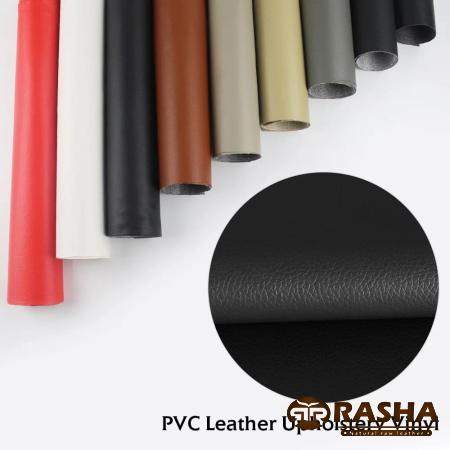 ts durability, resistance to moisture, and cost-effectiveness make it an ideal choice in manufacturing products for athletes and fitness enthusiasts. Environmental Considerations and Sustainability: 1. Reduction in Animal Impact: The use of black synthetic leather helps reduce the demand for genuine leather, minimizing the environmental impact associated with animal agriculture and the production of hides. This contributes to the conservation of natural resources and reduces greenhouse gas emissions, water usage, and deforestation linked to the leather industry. 2. Material Composition and Recycling: Synthetic leather is typically made from polyurethane (PU) or polyvinyl chloride (PVC), both of which can be recycled. Recycling synthetic leather helps reduce waste and prevents non-biodegradable materials from ending up in landfills. Additionally, advancements in technology have led to the development of sustainable alternatives using bio-based materials such as plant-based polyurethane or water-based polyurethane coatings. 3. Resource Efficiency: Compared to genuine leather, the manufacturing process of synthetic leather requires fewer resources such as water, energy, and chemicals. This factor contributes to a lower carbon footprint and reduced environmental impact. 4. Vegan and Sustainable Consumer Choices: As sustainability becomes a growing concern for consumers, black synthetic leather offers an attractive option for those looking to adopt vegan or sustainable lifestyles. By choosing synthetic leather products, individuals can align their beliefs and values with their purchasing decisions, positively impacting the environment in the process. Conclusion: Black synthetic leather is a versatile and sustainable alternative to genuine leather. Its attractive appearance, cost-effectiveness, durability, and ease of maintenance make it a popular choice across various industries. By opting for synthetic leather, consumers can enjoy stylish and ethically conscious products without compromising on quality or aesthetics. Additionally, its positive impact on the environment, reduced reliance on animal-based materials, and advancements in recycling technologies make it a greener and more sustainable choice for those concerned about the ecological footprint of traditional leather production. I. The Rise of Black Synthetic Leather in the Fashion Industry Black synthetic leather has gained significant popularity in the fashion industry, offering designers and consumers a cruelty-free alternative to genuine leather without compromising on style or quality. The versatility of synthetic leather allows fashion designers to create a wide range of garments, accessories, footwear, and handbags that mimic the luxurious look and feel of genuine leather. One of the advantages of black synthetic leather is its ability to be crafted and manipulated into various textures and finishes such as smooth, pebbled, embossed, or grained. This flexibility allows designers to create unique and innovative designs to cater to different style preferences and aesthetics. It is also available in different thicknesses, enabling designers to choose the appropriate weight for their desired application. Black synthetic leather is a cost-effective option compared to genuine leather, making it accessible to more consumers. This affordability factor has led to the increased use of synthetic leather in the fashion industry, particularly in fast fashion brands that strive to offer trendy and affordable products to a wider target market. Moreover, synthetic leather is more durable and resistant to wear and tear compared to genuine leather. It can withstand frequent use, preventing premature cracking or fading. This durability factor makes black synthetic leather an ideal choice for producing high-quality fashion items that can withstand the test of time. II. The Growing Demand for Black Synthetic Leather in the Automotive Industry The automotive industry is another sector that heavily relies on black synthetic leather for interior components such as upholstery, steering wheel covers, and door panels. The ability of synthetic leather to closely imitate genuine leather has allowed car manufacturers to offer vehicles with a premium look and feel without the high cost associated with genuine leather.
ts durability, resistance to moisture, and cost-effectiveness make it an ideal choice in manufacturing products for athletes and fitness enthusiasts. Environmental Considerations and Sustainability: 1. Reduction in Animal Impact: The use of black synthetic leather helps reduce the demand for genuine leather, minimizing the environmental impact associated with animal agriculture and the production of hides. This contributes to the conservation of natural resources and reduces greenhouse gas emissions, water usage, and deforestation linked to the leather industry. 2. Material Composition and Recycling: Synthetic leather is typically made from polyurethane (PU) or polyvinyl chloride (PVC), both of which can be recycled. Recycling synthetic leather helps reduce waste and prevents non-biodegradable materials from ending up in landfills. Additionally, advancements in technology have led to the development of sustainable alternatives using bio-based materials such as plant-based polyurethane or water-based polyurethane coatings. 3. Resource Efficiency: Compared to genuine leather, the manufacturing process of synthetic leather requires fewer resources such as water, energy, and chemicals. This factor contributes to a lower carbon footprint and reduced environmental impact. 4. Vegan and Sustainable Consumer Choices: As sustainability becomes a growing concern for consumers, black synthetic leather offers an attractive option for those looking to adopt vegan or sustainable lifestyles. By choosing synthetic leather products, individuals can align their beliefs and values with their purchasing decisions, positively impacting the environment in the process. Conclusion: Black synthetic leather is a versatile and sustainable alternative to genuine leather. Its attractive appearance, cost-effectiveness, durability, and ease of maintenance make it a popular choice across various industries. By opting for synthetic leather, consumers can enjoy stylish and ethically conscious products without compromising on quality or aesthetics. Additionally, its positive impact on the environment, reduced reliance on animal-based materials, and advancements in recycling technologies make it a greener and more sustainable choice for those concerned about the ecological footprint of traditional leather production. I. The Rise of Black Synthetic Leather in the Fashion Industry Black synthetic leather has gained significant popularity in the fashion industry, offering designers and consumers a cruelty-free alternative to genuine leather without compromising on style or quality. The versatility of synthetic leather allows fashion designers to create a wide range of garments, accessories, footwear, and handbags that mimic the luxurious look and feel of genuine leather. One of the advantages of black synthetic leather is its ability to be crafted and manipulated into various textures and finishes such as smooth, pebbled, embossed, or grained. This flexibility allows designers to create unique and innovative designs to cater to different style preferences and aesthetics. It is also available in different thicknesses, enabling designers to choose the appropriate weight for their desired application. Black synthetic leather is a cost-effective option compared to genuine leather, making it accessible to more consumers. This affordability factor has led to the increased use of synthetic leather in the fashion industry, particularly in fast fashion brands that strive to offer trendy and affordable products to a wider target market. Moreover, synthetic leather is more durable and resistant to wear and tear compared to genuine leather. It can withstand frequent use, preventing premature cracking or fading. This durability factor makes black synthetic leather an ideal choice for producing high-quality fashion items that can withstand the test of time. II. The Growing Demand for Black Synthetic Leather in the Automotive Industry The automotive industry is another sector that heavily relies on black synthetic leather for interior components such as upholstery, steering wheel covers, and door panels. The ability of synthetic leather to closely imitate genuine leather has allowed car manufacturers to offer vehicles with a premium look and feel without the high cost associated with genuine leather.
Specifications of leather
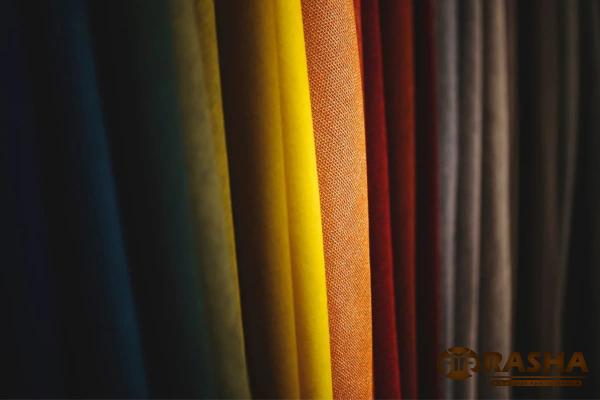 In addition to its cost-effectiveness, black synthetic leather offers superior resistance to fading caused by exposure to sunlight. Genuine leather tends to discolor over time when exposed to sunlight, while synthetic leather retains its color and appearance for longer periods. This fade-resistant property makes synthetic leather a practical choice, especially for interior applications in vehicles exposed to sunlight frequently. Furthermore, synthetic leather is easier to clean and maintain compared to genuine leather. It is resistant to stains and spills, making it an ideal option for car interiors that are prone to accidental spills and messes. Regular wiping with a damp cloth or using mild soap and water solutions is typically sufficient to keep black synthetic leather car interiors looking clean and new. Considering the significant cost savings, durability, ease of maintenance, and superior fade resistance, black synthetic leather has become a preferred choice for both budget-friendly vehicles and high-end luxury cars, allowing car manufacturers to offer a premium feel at various price points. III. Black Synthetic Leather in Furniture and Interior Design The furniture and interior design industry have embraced black synthetic leather as a practical and stylish option for upholstery. Synthetic leather not only provides a sleek and contemporary look but also offers durability and ease of maintenance, making it an excellent choice for furniture that is used frequently. Sofas, chairs, ottomans, and headboards are often upholstered with black synthetic leather to create a luxurious ambiance within interior spaces. The ability to choose from different textures and finishes allows designers to match the style and aesthetic of any given space, whether it be a modern office, a traditional living room, or a chic hotel lobby. In addition to its visual appeal, synthetic leather offers several functional benefits for furniture. Its resistance to stains and spills ensures that spills can be easily wiped away without permanent damage. This durability factor, coupled with the cost-effectiveness of synthetic leather, makes it an attractive choice for both residential and commercial spaces where furniture sees high traffic and constant use. Black synthetic leather can also be found in other interior design applications such as wall coverings, room dividers, and decorative accents. Its versatility allows designers to create cohesive and elegant interiors while maintaining sustainability and cost-efficiency. IV. The Role of Black Synthetic Leather in Electronics and Gadgets The functionality and appeal of black synthetic leather extend beyond fashion and furniture industries, finding its way into the world of electronics and gadgets. Synthetic leather is commonly used in the production of phone cases, laptop sleeves, tablet covers, and other accessories. These products combine style and protection, offering users a practical and visually appealing way to safeguard their devices. Synthetic leather phone cases and laptop sleeves provide durable and cushioned protection against scratches, bumps, and minor falls. The sleek and sophisticated appearance of black synthetic leather adds an element of luxury to these everyday tech accessories. The use of synthetic leather in electronics and gadget accessories also aligns with sustainability efforts.
In addition to its cost-effectiveness, black synthetic leather offers superior resistance to fading caused by exposure to sunlight. Genuine leather tends to discolor over time when exposed to sunlight, while synthetic leather retains its color and appearance for longer periods. This fade-resistant property makes synthetic leather a practical choice, especially for interior applications in vehicles exposed to sunlight frequently. Furthermore, synthetic leather is easier to clean and maintain compared to genuine leather. It is resistant to stains and spills, making it an ideal option for car interiors that are prone to accidental spills and messes. Regular wiping with a damp cloth or using mild soap and water solutions is typically sufficient to keep black synthetic leather car interiors looking clean and new. Considering the significant cost savings, durability, ease of maintenance, and superior fade resistance, black synthetic leather has become a preferred choice for both budget-friendly vehicles and high-end luxury cars, allowing car manufacturers to offer a premium feel at various price points. III. Black Synthetic Leather in Furniture and Interior Design The furniture and interior design industry have embraced black synthetic leather as a practical and stylish option for upholstery. Synthetic leather not only provides a sleek and contemporary look but also offers durability and ease of maintenance, making it an excellent choice for furniture that is used frequently. Sofas, chairs, ottomans, and headboards are often upholstered with black synthetic leather to create a luxurious ambiance within interior spaces. The ability to choose from different textures and finishes allows designers to match the style and aesthetic of any given space, whether it be a modern office, a traditional living room, or a chic hotel lobby. In addition to its visual appeal, synthetic leather offers several functional benefits for furniture. Its resistance to stains and spills ensures that spills can be easily wiped away without permanent damage. This durability factor, coupled with the cost-effectiveness of synthetic leather, makes it an attractive choice for both residential and commercial spaces where furniture sees high traffic and constant use. Black synthetic leather can also be found in other interior design applications such as wall coverings, room dividers, and decorative accents. Its versatility allows designers to create cohesive and elegant interiors while maintaining sustainability and cost-efficiency. IV. The Role of Black Synthetic Leather in Electronics and Gadgets The functionality and appeal of black synthetic leather extend beyond fashion and furniture industries, finding its way into the world of electronics and gadgets. Synthetic leather is commonly used in the production of phone cases, laptop sleeves, tablet covers, and other accessories. These products combine style and protection, offering users a practical and visually appealing way to safeguard their devices. Synthetic leather phone cases and laptop sleeves provide durable and cushioned protection against scratches, bumps, and minor falls. The sleek and sophisticated appearance of black synthetic leather adds an element of luxury to these everyday tech accessories. The use of synthetic leather in electronics and gadget accessories also aligns with sustainability efforts.
buy leather
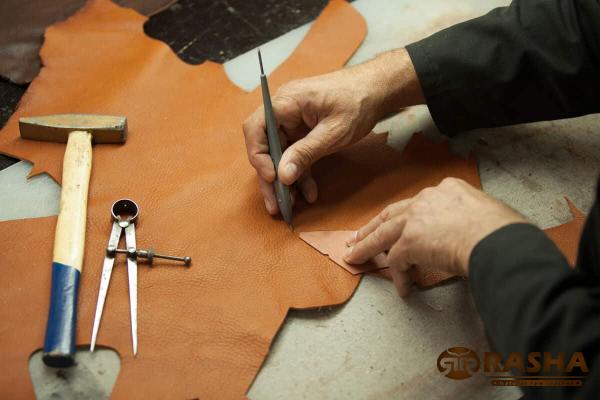 By choosing synthetic leather phone cases or laptop sleeves instead of genuine leather alternatives, consumers contribute to reducing the demand for animal-based materials while still enjoying the look and feel of leather. V. Black Synthetic Leather in Sports Equipment Manufacturing The sports equipment industry has embraced black synthetic leather due to its durability, resistance to moisture, and cost-effectiveness. Synthetic leather is commonly used in the production of gym bags, gloves, sports shoes, and other sporting equipment. The durability of synthetic leather makes it an ideal choice for items that undergo rigorous use, such as gym bags and sports shoes, as it can withstand constant wear and tear. Resistance to moisture is another advantageous property, preventing the growth of bacteria and extending the lifespan of sports equipment. From the consumer’s standpoint, black synthetic leather sports equipment often delivers superior performance and longevity compared to genuine leather alternatives. This is particularly important in sports where durability, flexibility, and protection are essential, such as boxing, weightlifting, or cycling. Additionally, the cost-effectiveness of synthetic leather allows sports enthusiasts of all budgets to have access to high-quality sporting equipment without breaking the bank. This affordability factor makes black synthetic leather a popular choice among athletes and fitness enthusiasts alike. VI. Environmental Considerations and Sustainability of Black Synthetic Leather One of the significant advantages of black synthetic leather is its positive impact on the environment compared to genuine leather. The production of genuine leather involves the raising and slaughter of animals, which contributes to deforestation, generates large amounts of waste, and produces significant greenhouse gas emissions. By opting for black synthetic leather, consumers can reduce the demand for genuine leather, thereby minimizing the environmental impact associated with animal agriculture and the leather industry as a whole. This includes reducing deforestation, water usage, and the carbon footprint related to the leather production process. Furthermore, synthetic leather is typically made from polyurethane (PU) or polyvinyl chloride (PVC), both of which are recyclable materials. Recycling synthetic leather helps reduce waste and prevent non-biodegradable materials from ending up in landfills. Additionally, advancements in technology have led to the development of sustainable alternatives, such as bio-based materials and water-based polyurethane coatings. The resource efficiency of black synthetic leather is also worth noting. The manufacturing process of synthetic leather requires fewer resources such as water, energy, and chemicals compared to the production of genuine leather. This reduced resource consumption contributes to a lower carbon footprint and a more sustainable approach to leather production. In conclusion, black synthetic leather provides a versatile and sustainable alternative to genuine leather in various industries. Its appealing appearance, cost-effectiveness, durability, and resistance to fading and stains make it a practical choice for fashion, automotive, furniture, electronics, and sports equipment manufacturing. Moreover, the environmental benefits associated with black synthetic leather align with the growing consumer demand for cruelty-free and eco-friendly options. As advancements in technology continue to improve the sustainability of synthetic materials, black synthetic leather is likely to play an even bigger role in the future of these industries.
By choosing synthetic leather phone cases or laptop sleeves instead of genuine leather alternatives, consumers contribute to reducing the demand for animal-based materials while still enjoying the look and feel of leather. V. Black Synthetic Leather in Sports Equipment Manufacturing The sports equipment industry has embraced black synthetic leather due to its durability, resistance to moisture, and cost-effectiveness. Synthetic leather is commonly used in the production of gym bags, gloves, sports shoes, and other sporting equipment. The durability of synthetic leather makes it an ideal choice for items that undergo rigorous use, such as gym bags and sports shoes, as it can withstand constant wear and tear. Resistance to moisture is another advantageous property, preventing the growth of bacteria and extending the lifespan of sports equipment. From the consumer’s standpoint, black synthetic leather sports equipment often delivers superior performance and longevity compared to genuine leather alternatives. This is particularly important in sports where durability, flexibility, and protection are essential, such as boxing, weightlifting, or cycling. Additionally, the cost-effectiveness of synthetic leather allows sports enthusiasts of all budgets to have access to high-quality sporting equipment without breaking the bank. This affordability factor makes black synthetic leather a popular choice among athletes and fitness enthusiasts alike. VI. Environmental Considerations and Sustainability of Black Synthetic Leather One of the significant advantages of black synthetic leather is its positive impact on the environment compared to genuine leather. The production of genuine leather involves the raising and slaughter of animals, which contributes to deforestation, generates large amounts of waste, and produces significant greenhouse gas emissions. By opting for black synthetic leather, consumers can reduce the demand for genuine leather, thereby minimizing the environmental impact associated with animal agriculture and the leather industry as a whole. This includes reducing deforestation, water usage, and the carbon footprint related to the leather production process. Furthermore, synthetic leather is typically made from polyurethane (PU) or polyvinyl chloride (PVC), both of which are recyclable materials. Recycling synthetic leather helps reduce waste and prevent non-biodegradable materials from ending up in landfills. Additionally, advancements in technology have led to the development of sustainable alternatives, such as bio-based materials and water-based polyurethane coatings. The resource efficiency of black synthetic leather is also worth noting. The manufacturing process of synthetic leather requires fewer resources such as water, energy, and chemicals compared to the production of genuine leather. This reduced resource consumption contributes to a lower carbon footprint and a more sustainable approach to leather production. In conclusion, black synthetic leather provides a versatile and sustainable alternative to genuine leather in various industries. Its appealing appearance, cost-effectiveness, durability, and resistance to fading and stains make it a practical choice for fashion, automotive, furniture, electronics, and sports equipment manufacturing. Moreover, the environmental benefits associated with black synthetic leather align with the growing consumer demand for cruelty-free and eco-friendly options. As advancements in technology continue to improve the sustainability of synthetic materials, black synthetic leather is likely to play an even bigger role in the future of these industries.
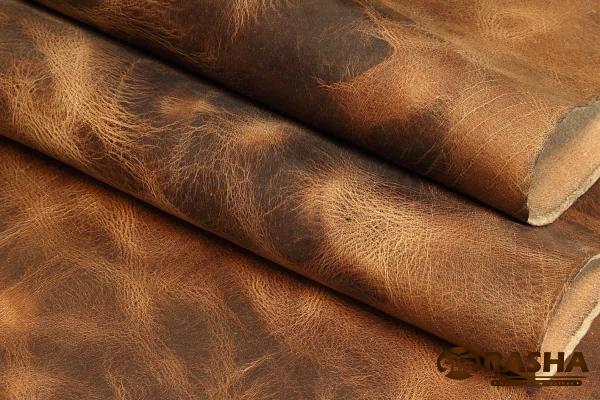
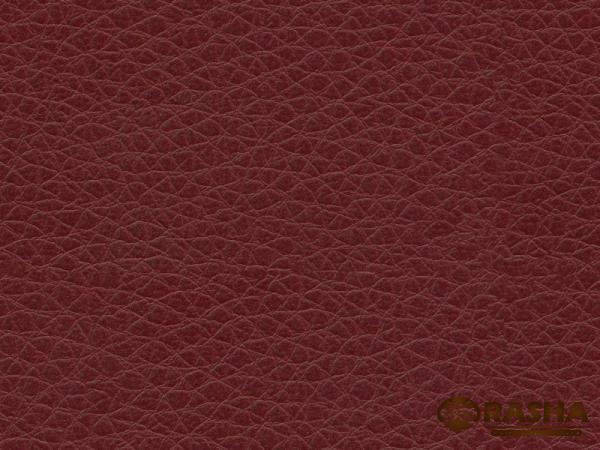
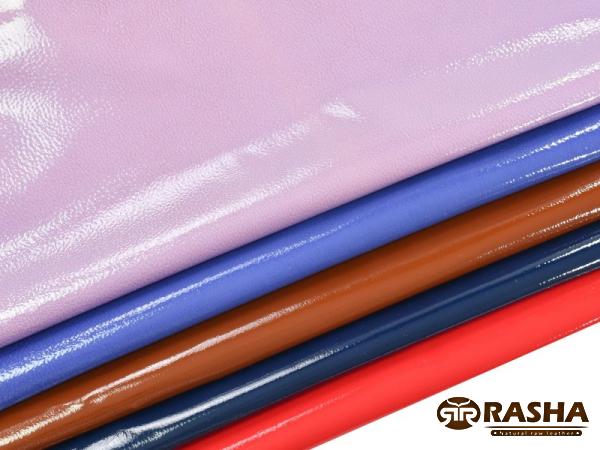
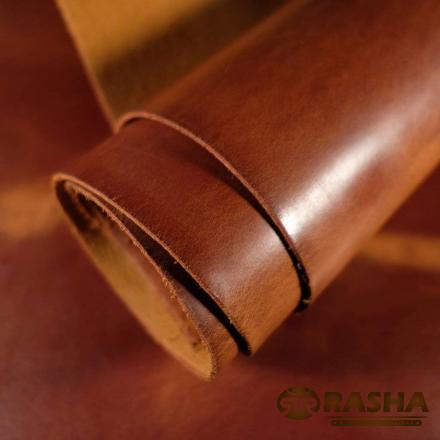
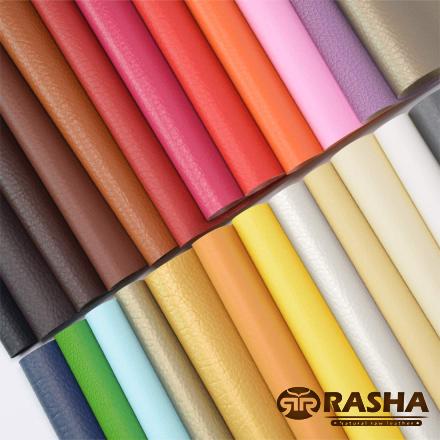
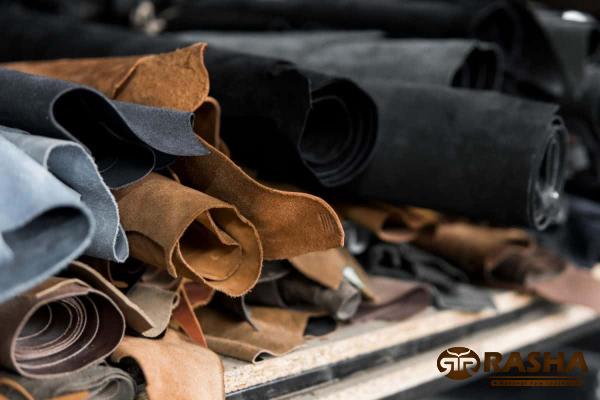
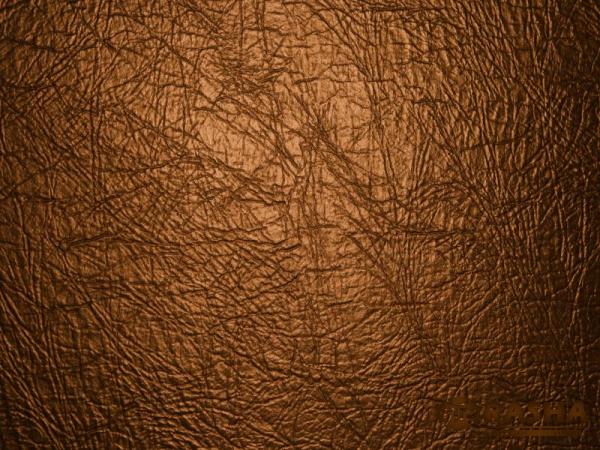
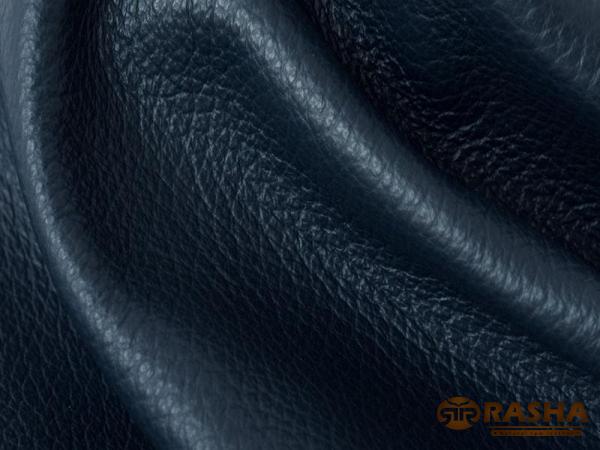
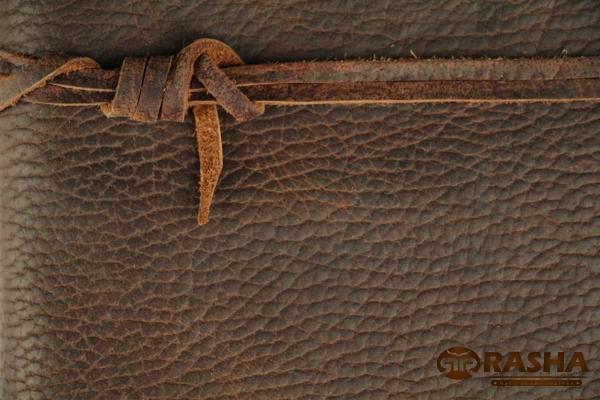
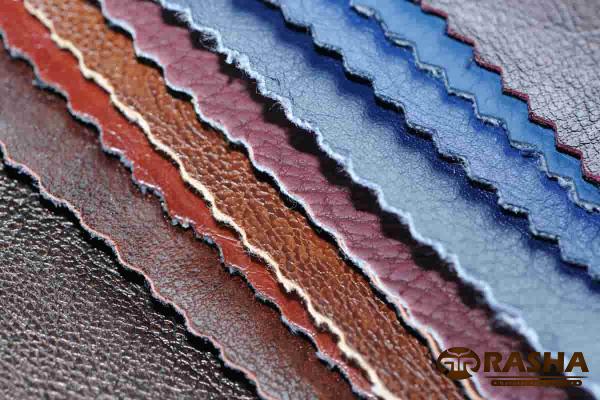
Your comment submitted.